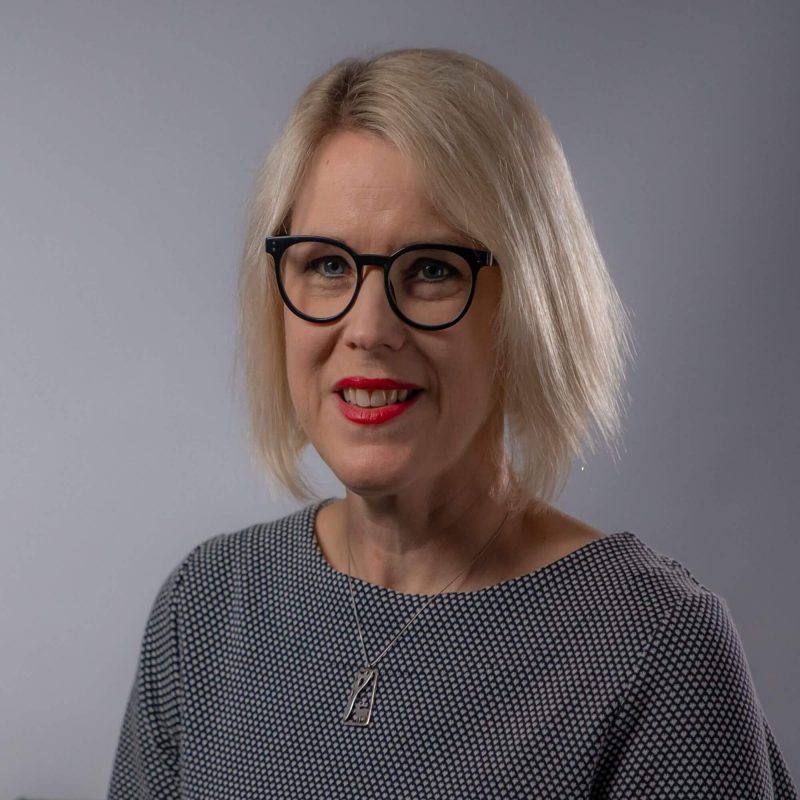By Dr. Emma Hyde*
To mark World Radiography Day (November 8, 2021), Dr Emma Hyde, Associate Professor in Diagnostic Imaging at the University of Derby and National Teaching Fellow, discusses the importance of patient-centred care in diagnostic radiography, and shares their research findings and a new educational resource.
Patient (or Person) centred care is a hot topic in health and social care, driven by increasing demands on the national health service, and increasing expectations of patients and their carers. All of us at one time or another have received health or social care services or supported a loved one as they have received care. Many of us have experienced significant variations in the quality of that care and how well it has met either our own needs, or those of our loved one. Care can vary from being excellent, meeting the needs of patients and their families, to inadequate, and therefore failing to meet the needs or expectations of patients.
Driven by a passion for improving patient care within my own profession, I recently carried out a large-scale national research project, funded by the College of Radiographers Industry Partnerships Scheme in collaboration with Professor Maryann Hardy from the University of Bradford, to define informed measures of patient-centred care in diagnostic radiography. Having defined what good patient-centred care looked like from the perspectives of our research participants, the next step was to share those findings with the wider health and social care community and students studying to become health or social care professionals. We have done this via a series of journal articles, conference presentations, and educational resources.
What is good patient-centred care?
My research into patient-centred care in diagnostic radiography was a large-scale national project, which took two years to complete. The participants came from five different perspectives – service users who had experienced radiography, clinical radiographers, radiography managers, radiography educators and student radiographers. The research found that all five participant groups thought that to deliver good patient-centred care, radiographers must be technically competent, but after that their priorities differed.
Clinical radiographers and radiography managers were concerned about the impact of time pressures in patient-centred care. Radiography educators and student radiographers focused on the importance of providing information, allowing time for questions, and including carers. Service users talked at length about the importance of communication, physical and psychological care, and the involvement of a carer. Interestingly, the perspectives of service users most closely aligned to student radiographers, possibly because students are ‘relative newcomers’ to the profession, and perhaps had a more objective view. The research resulted in a Model for Patient Centred Care in Diagnostic Radiography.
How can we use the research to inform practice?
By publishing our research findings in a variety of radiography related journals and trade magazines, as well as in several book chapters, we have already reached a wide cross-section of the radiography community, and hope that the research findings have encouraged them to develop patient-centred behaviours. This can be challenging in busy clinical departments, but we hope that radiographers can make slight changes in their practice that have a significant impact on patients’ experiences, such as the use of the ‘Hello my name is….’ campaign for more compassionate care. We have also shared our research at several academic conferences, study days, and special interest groups, again with the aim of raising awareness of patient-centred approaches.
Alongside this, we have developed several audit tools which can be used to self-assess an individual radiographer’s level of awareness of patient-centred care (this could be a reflective development activity) and an organisational audit for managers to use. We hope that these will help individual radiographers and managers to increase their awareness of patient-centred care and implement them within their workplaces.
Supporting the development of patient-centred care behaviours
Following on from the research, I have worked with the University of Derby to develop a free online course, which provides an educational resource to support the development of patient-centred care (PCC) approaches within diagnostic radiography.
The Massive Open Online Course (MOOC), which is called ‘Patient Centred Care in Diagnostic Radiography: An Educational Toolkit’, was developed to share the findings of Maryann and I’s research and offer ways to support increased awareness of patient-centred approaches, with the aim of improving patient care within diagnostic radiography.
As such, the MOOC has six units designed to take the learner on a patient-centred journey. The MOOC is free to access and takes 18 hours to complete. It is essential learning for student radiographers and trainee assistant practitioners in imaging but may also be of interest to qualified radiographers or assistant practitioners as CPD (Continuing Professional Development).
What is next?
My work on patient-centred care in diagnostic radiography does not stop here. Over the next 18 months to two years, I plan to carry out further research which includes evaluating the impact of the MOOC on student radiographers’ awareness of patient-centred care, evaluating the impact of the MOOC on qualified radiographers’ awareness of patient-centred care, and investigating how international perspectives on this are similar or differ to the United Kingdom.
If you are thinking about a potential career in diagnostic radiography, find out more about our programmes of study leading to qualification as a diagnostic radiographer here: Diagnostic Radiography BSc (Hons) – Radiography – University of Derby
* Dr. Emma Hyde is a qualified HCPC registered diagnostic radiographer with ten years’ experience working in clinical practice, and 15 years’ experience of working in higher education. She is currently an Associate Professor in Diagnostic Imaging and Head of Diagnostic Imaging, Operating Department Practice & Osteopathy at the University of Derby. Emma is passionate about person-centred care, driven by a desire to improve people’s experiences of health and social care settings. Emma uses her role as an educator to positively influence students to be person-centred in their approaches and has carried out large-scale research into concepts of person-centred care within her profession of diagnostic radiography.
